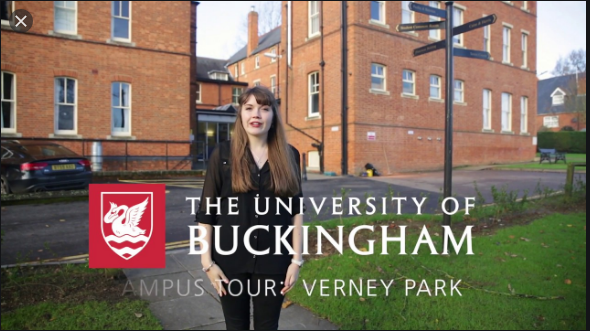MSc Computing (by Research)
Research programmes can be full-time or part-time with starting dates in January, April, July and September.
Research programme
The academic staff in the Applied Computing Department (ACD) are all engaged in research and publications. Considering its modest size, ACD has successfully attracted research funding from various sources in the UK and the EU, including industry, research councils, HEA and EU framework projects such as FP6. Furthermore, ACD has been working and collaborating with many European research institutions.
For the academic year 2012-2013, 2 PhD and 6 MSc students (1 in Mathematics) have graduated, four of whom graduated with Distinction. The 2 PhDstudents have made it for the March graduation and we expect to have 3 or 4 more completing their PhD research programmes for the next graduation. One of our new PhD students in Computing joined the Department last October, and 3 other PhD students have joined us since. Over the last few years, the number of research students in ACD has grown steadily to (currently) 29 PhD and 2 Master’s research students.
We have had over 20 refereed conference and journal papers published during the last 12 months, and two of the papers have been awarded best paper awards.
ACD supports diverse research topics addressing varied applied computing technologies such as:
- Image processing and pattern recognition with applications in biometric-based person identification, image super-resolution, digital watermarking and steganography, content-based image / video indexing and retrieval, biomedical image analysis.
- Multi-factor authentication and security algorithms.
- Wireless networks technologies (Multi-frequency Software-Defined / Cognitive Radios, convergence and integration of different wireless technologies and standards such as WiFi and WiMax, IPv4 and IPv6, wireless mesh technologies, intrusion detection and prevention, efficiency and stability of ad hoc networks).
- Hybrid navigation and localisation integrations for mobile handsets, including using Cellular and WiFi in conjunction with GPS and Glonass for seamless positioning indoors, Multiplexed receive chain of GPS/Glonass with on-board handset Bluetooth/WiFi, GNSS signals multiplexing for real-time simulation.
- Cloud computing, including the readiness of mobile operating systems for cloud services and focusing on techniques for fast computing handovers, efficient virtualisation and optimised security algorithms.
- Data mining techniques, including database systems, the application of data mining techniques in image and biological data, human-computer interaction and visual languages.
- Research and development of Apps for mobile devices and smart TVs, particularly for application in the areas of education and healthcare.
- Differential geometry – Einstein metrics, quasi-Einstein metrics, Ricci solitons, numerical methods in differential geometry.
As well as researching the chosen subject, our students engage in delivering seminars weekly, attending conferences and workshops, attending online webinars and discussion forums, attending training and focused group studies, supervising tutorial and laboratory sessions for undergraduate students, peer reviews and final year project supervision, among a host of technical and networking activities to enhance their skills and techniques.
Campus Information
Buckingham
Intakes
- Jan
- April
- Aug
Application Processing Time in Days: 15
Minimum English Language Requirements
| English Level Description | IELTS (1.0 -9.0) | TOEFL IBT (0-120) | TOEFL CBT (0-300) | PTE (10-90) | |
|---|---|---|---|---|---|
| Expert | 9 | 120 | 297-300 | 86-90 | |
| Very Good | 8.5 | 115-119 | 280-293 | 83-86 | |
| Very Good | 8 | 110-114 | 270-280 | 79-83 | |
| Good | 7.5 | 102-109 | 253-267 | 73-79 | |
| Good | 7 | 94-101 | 240-253 | 65-73 | |
| Competent | 6.5 | 79-93 | 213-233 | 58-65 | |
| Competent | 6 | 60-78 | 170-210 | 50-58 | |
| Modest | 5.5 | 46-59 | 133-210 | 43-50 | |
| Modest | 5 | 35-45 | 107-133 | 36-43 | |
| Limited | 4 | 32-34 | 97-103 | 30-36 | |
| Extremely Limited | < 4 | < 31 | < 93 | < 30 |
Job Opportunity Potential
Our graduates have gone on to further study at most of the world’s leading universities, including Harvard, London, Oxford and Cambridge and secured jobs in senior positions around the world. Among our alumni we have a graduate who became the head of his country’s civil service and one who became a leading Formula One motor-racing driver. Another secured a position as the Minister of Sabah and one female law graduate became the first British lawyer to become a French Advocate.
PSW Opportunity
2 years of PSW available after completion of Degree program
Admission Requirement / Eligibility Criteria
Applicants are normally expected to have a first or second class honours degree or significant experience in computing.
Postgraduate entry requirements
In order to study at postgraduate level (Master’s degree), you will normally need to have attained:
- A Bachelor’s degree from a recognised higher education institution, with Second Class/Division (50-64%) equivalent to a British Bachelor’s (Honours) degree, with a minimum of a 2:2, depending on school of study.
For More Information Please Connect Our PSA Counselor
- Course Type: Full Time
- Course Level: Masters/PG Degree
- Duration: 01 Year
-
Total Tuition Fee:
13950 GBP
Annual Cost of Living: 9207 GBP
Application Fee: N/A
Similar Programs
- MSc Strategic Marketing & Customer Experience Management at University of Buckingham
- MSc Management in a Digital Service Economy at University of Buckingham
- MSc Applied Enterprise and Innovation at University of Buckingham
- Master of Business Administration (MBA) at University of Buckingham
- MSc Money, Banking and Central Banking at University of Buckingham
- MSc Finance and Investment at University of Buckingham

